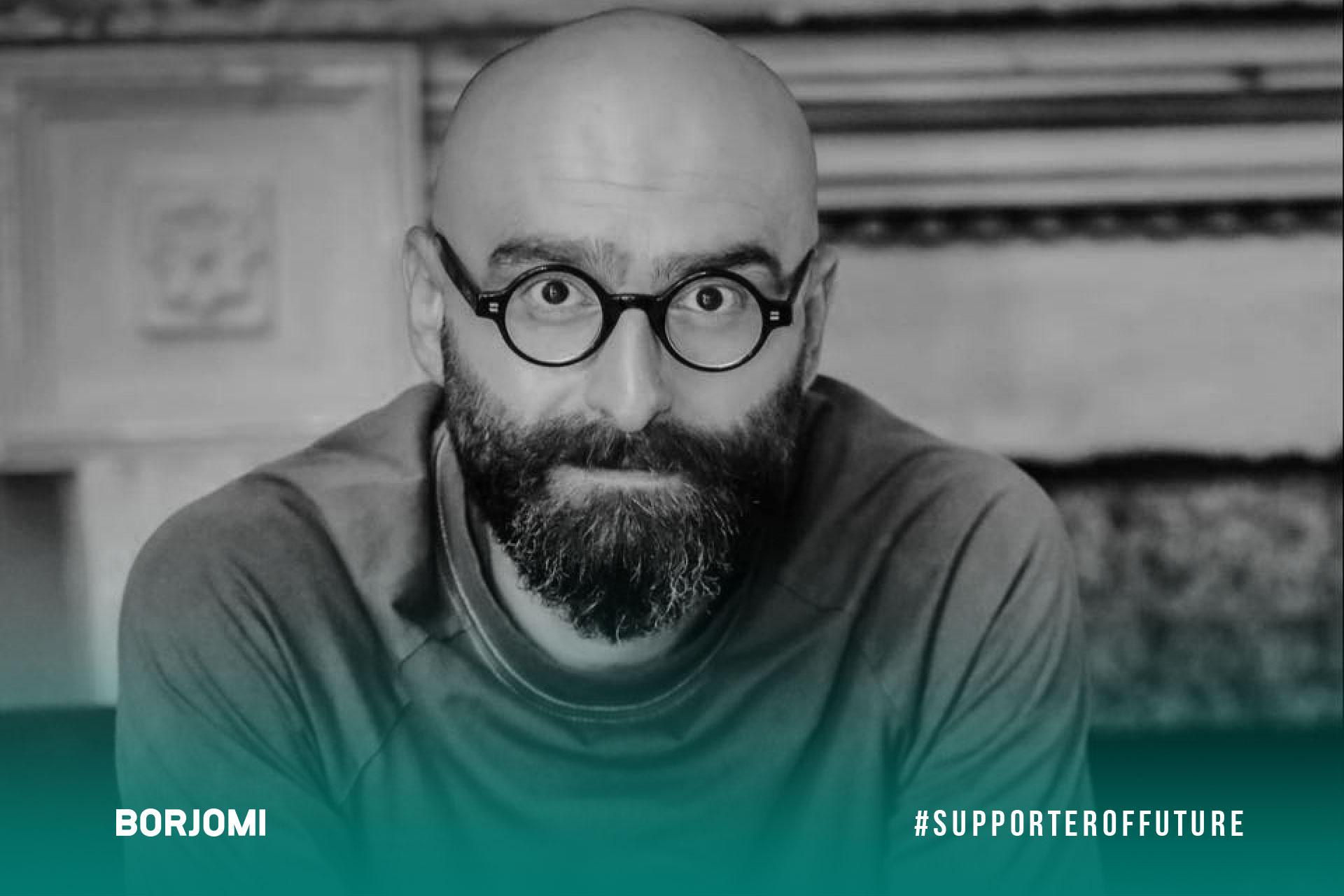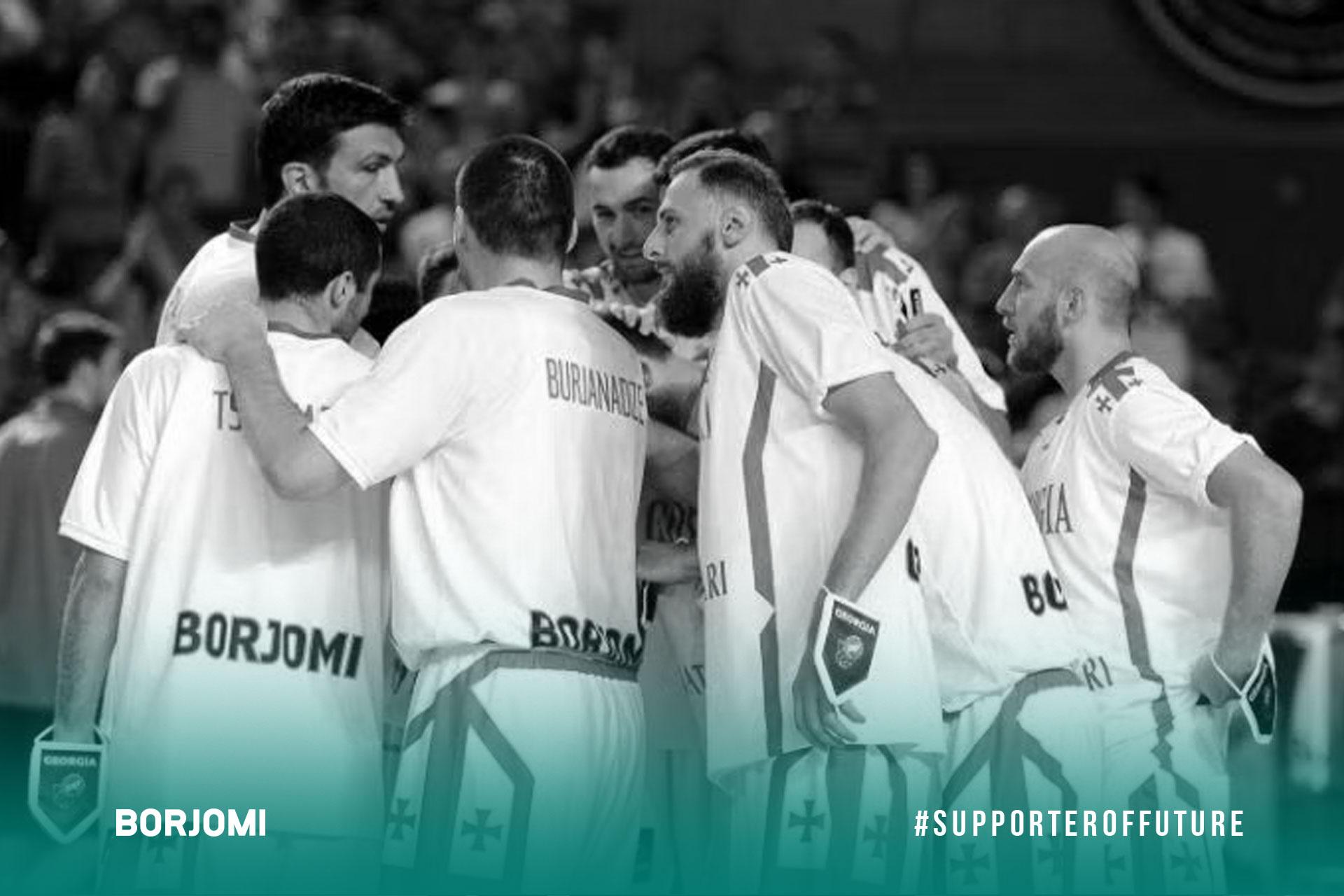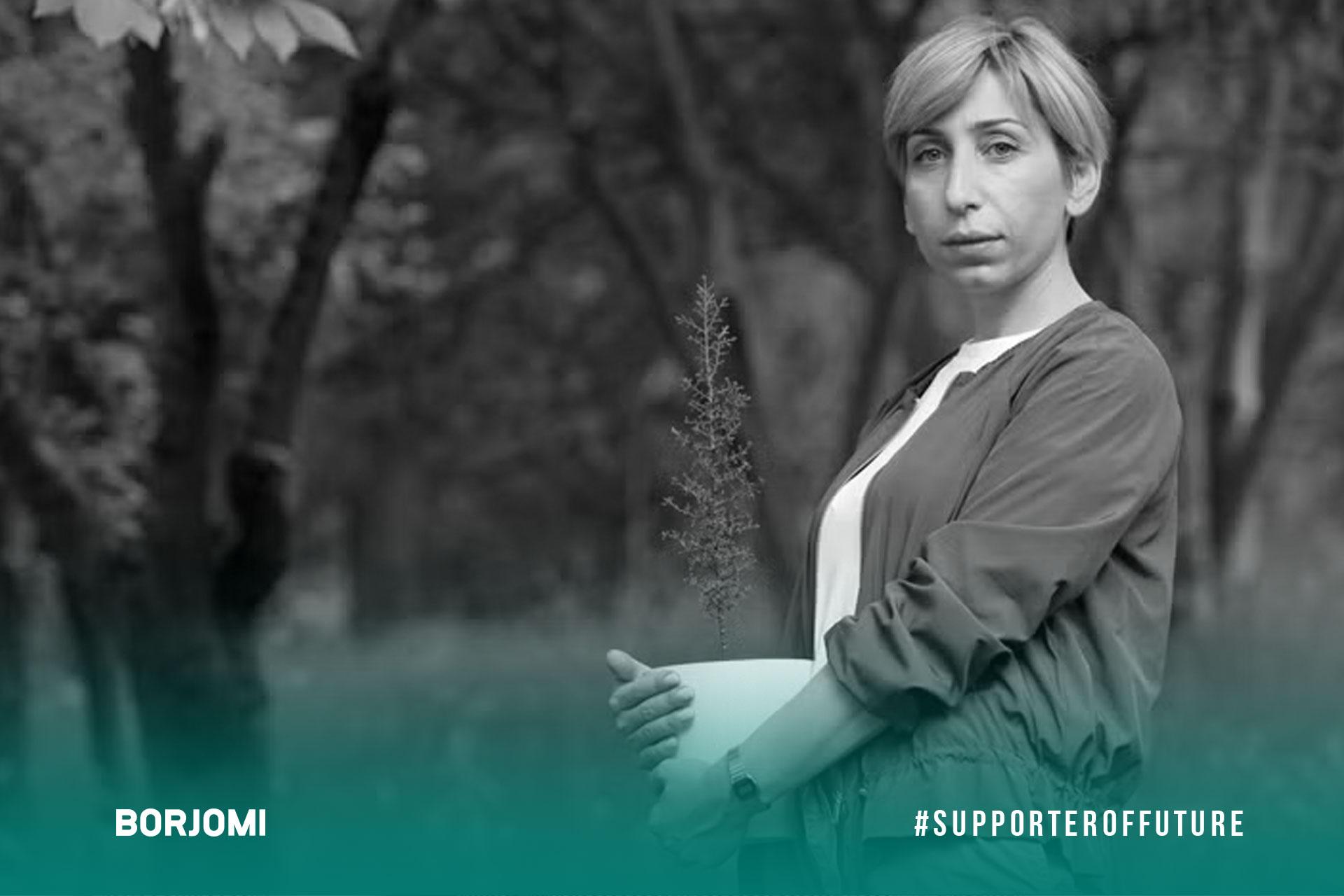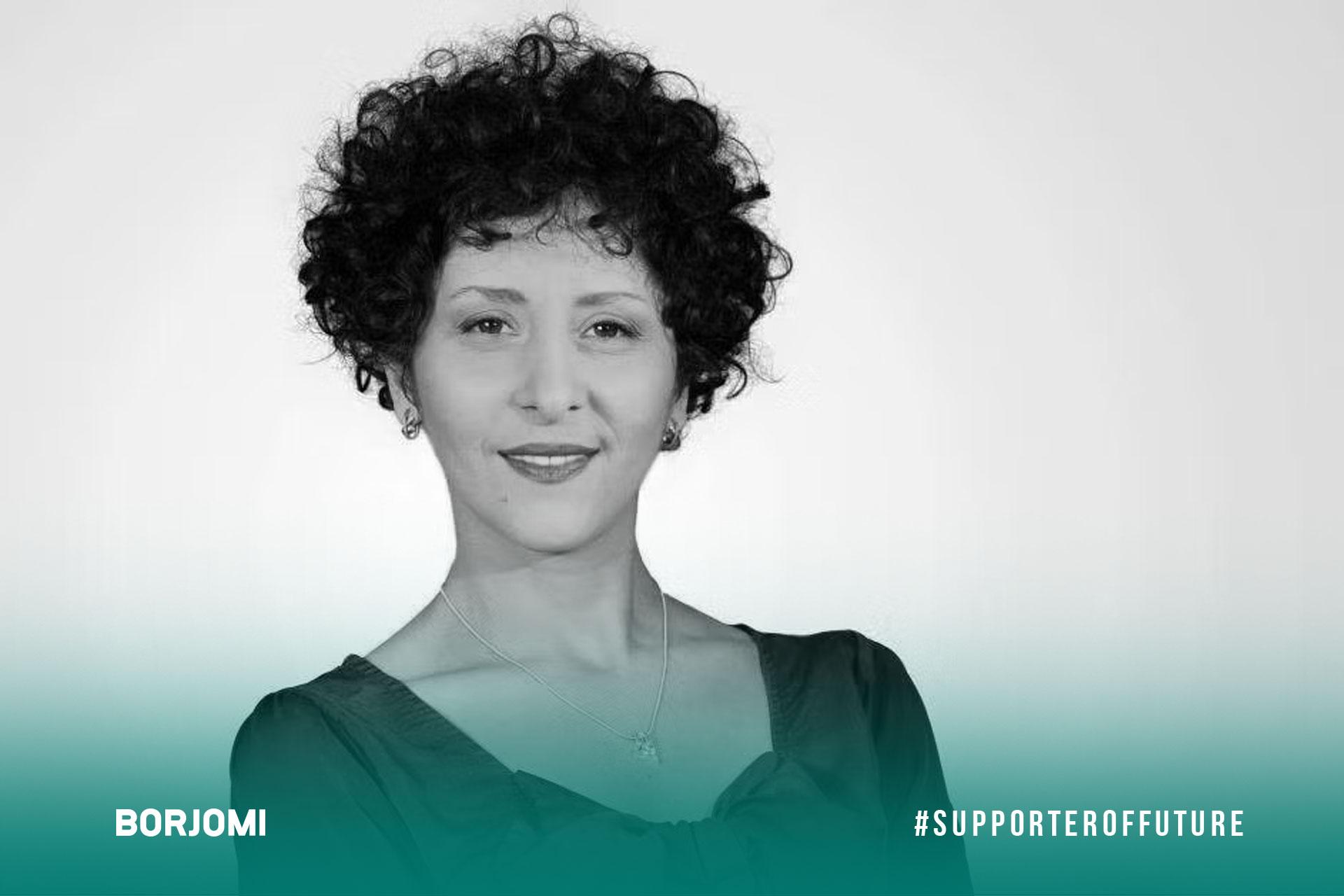
Dato Gorgiladze - Sincerity Wins
Even in my early childhood I realized that I wanted to tell stories, written, oral - it didn't matter how. I felt that the very process of telling a story gave me pleasure, and if the people around me felt the same way, I felt cool.
Later, when making professional choices, I combined my two incurable " illnesses " - the desire to tell stories and curiosity - and, from there, journalism came out.
And then happened what is called - life. I discovered that journalism is not about writing well on free topics and telling stories vigorously; a good report is not a beautiful description of the road from home to school, and an interesting interview is not a conversation with a friend. It is clear that this discovery did not go painlessly for me. Such discoveries, if not nullify self-confidence, then greatly reduce it.
For some, facing life is an incentive to start a new life, but not for me. Some people use failure as fuel and continue the journey with more courage. They set new, bigger goals and achieve them. My goals consist of two steps. They are to wake up, get out of the house, and get from point A to point B. However, achieving each of them gives me a sense of happiness. In this, I'm like the characters I've befriended at different stages of life and book reading.
Failure has never motivated me. However, it was the only opportunity to find out which of the people around me were real and which were bubbles. Real people (and among them were those spawned from fiction, i.e. characters that are sometimes more real than the real thing) gave me strength and hope.
How can I forget a report I read freshman year that was more like "what a raindrop tells me" than journalistic writing. I wanted the earth to open under my feet back then. But I also remember the words of Nika Esebua, sitting next to me....
In general, I believe failure is a necessary seasoning. I'm not trying to romanticize failure, I don't mean to say that it should outweigh the happy moments, I just believe that it's only one's own failure that turns life into an experience. Otherwise it would be a monotonous series of days and nights.
In my case, it has always been like this: as the famous proverb says - downs are followed by ups, and vice versa. One thing is that I have never tried to disregard the teachings of an intelligent person and never tried to get any benefits at the expense of my conscience, my own values and sincerity.
I'm no saint - I've had all sorts of things happen to me. Everyone has, but all my downfalls have been accompanied by anxiety and sleepless nights.
When it comes to advice (which I've been giving more and more thoughtfully lately), I can say one thing - I advise being honest to those who need such advice. Sincerity wins in everything - in reporting, in friendship, and in family relationships. Maybe not right away, but over time - for sure.
14 November, 2020

Zaza Pachulia – A Message to Future Basketball Players
"I became a member of the NBA family 16 years ago. Those were the best years, when I had to work hard, show determination, give up a lot of things, but in return I got the best memories, gained a lot of friends, experience and, most importantly, your love. All my life I will be grateful for the support I felt despite the great distance.
I'm not worried that it's all over, I'm happy that all that was .... thank you."
September 6, 2019
I can't forget those moments when I first stepped on the court. Leaving it, I felt the beginning of something special, the immense love for this sport and the joy it gave me. These emotions have been with me throughout my career.
Now, unfortunately, I am no longer on the court, as I have finished my career as a player. But the emotions that the game of basketball gave me have stayed with me and will always be with me.
I was still very young when my first coach told me that with hard work success will come. Gradually I understood the meaning of these words. Indeed, if you truly love your work and do not spare yourself, success is sure to come.
Of the many games I played, I especially remember the first game in the NBA, when I stepped on the court for the first time, and the second game - the finals, when I became the champion. The thing I was most proud of during those years was that many Georgia fans were able to mobilize over a million votes for the All-Star. That was probably the biggest pride for me that I will never forget.
When people ask me what I might have been if I wasn't a basketball player, I say probably the tallest math teacher ever. Just kidding of course, but I loved the subject and would have loved to go in that direction.
Basketball has taught me about life and everything in general. The NBA is a big family to me, I'm happy to have spent important years of my life in this family. When I started my last season in the NBA, I wrote this post on my Facebook, "When I first came to basketball, I never thought I would ever write this status. 16th season in the NBA." So today I truly believe that with hard work you can achieve anything. Work hard and always believe in yourself and also think about the fact that if you don't work hard, there's bound to be a peer somewhere who might be more determined than you. Therefore, do not miss your moment.
Remember that if you want to, you can use productively every second. You can get information on many issues today. So don't waste your time and engage in self-development. I finished my sports career at the age of 36, but I'm starting a new phase - I started studying at Stanford University as a sports management major. During the quarantine period, I was taking this course and coaching my kids basketball at the same time. I am a strict and demanding coach for them, although I believe that from this age, they should be taught discipline, which is the most important thing for success in sports.
In many years I hope to see a lot of Georgian kids in big basketball - maybe from my academy or other schools. I'm rooting for them hard. I also hope that some of my children will follow my path and play basketball at the professional level. I will always be proud of the success of the next generation.
19 June, 2020

Goga Chanadiri - You are not alone, even when you are alone
One violet cannot beautify the whole field said Aunty Nora from Aspindza when I met her near Shoreti temple.
One swallow does not make a summer, says a famous proverb.
When I heard these phrases, I protested - why can't one man change his environment?
The answer is that yes, it is possible to change a lot of things.
At first I believed in my abilities. Then I realized what was needed and necessary for the environment I had to be in.
I will honestly say that I made a choice in favor of my country because its strength is my strength.
I chose to be a good citizen, not to litter, read a lot of books, respect the national language and not use barbarisms, fully respect traffic rules, buy local products, live a healthy lifestyle, hike and not use drugs.
I also gave up envy and profanity, completely gave up disposable utensils and polyethylene to form less garbage, etc.
All of this became a lifestyle for me.
It gave me confidence. However, I realized that it was not enough because I saw that many people were behaving differently.
I started to spread these ideas to my friends and put them into practice. Then I moved to schools and started talking to students about civic values and the concept of the state. I always asked them what home and family meant to them. And I always got the right answer. The students knew that a family is a group of people consisting of a mother, father, child, grandchild, grandmother, grandfather, and so on. And a house is the room in which this unity, the family, lives. Then I explained to them that a country is a house in which the unity of people lives and which the state represents in the form of institutions and society.
With this example, it was easy for them to understand the importance of the state.
They already knew that if you cannot litter in your house, cut a chair or leave a tap open in your house, you cannot do it in your country either.
After the meetings we organized various social actions.
For example, we spoke in defense of our native language and wrote at schools or on social networks in pure Georgian words, avoiding barbarisms. We also promoted the culture of following traffic rules, and drew creative zebra lines on the asphalt. We refused to throw trash on the ground and held cleanup events. We understood the importance of education and read and discussed books.
And so it went on for several years.
One day I got a call from a high school student, with whom we had talked for two hours about civic culture, saying that he was going to organize a cleanup action in Shuamta and asked me to help in this endeavor.
Then I realized that I was definitely not alone, that others were also concerned about the littering of the environment.
Naturally, I helped them in this endeavor. After that, a student from another school called me: "We want to hold a fair of Georgian things at the monument of Deda Ena, will you help us? I agreed and when I arrived there, I saw that the students had brought their parents to buy crafts. Everything was sold and the parents realized the importance of buying local crafts.
Students from one of the schools started collecting books and sending them to Shatili school.
I won't list now how many meetings and other things I organized with students. They are taking steps every day towards having a good home and being good family men.
And my confidence grows every day because I see that the guys understand the importance of the state and are willing to change the environment that I, like them, and like you, want to make better.
And yes, a single violet can beautify an entire field and a single swallow can make a summer.
The key is to believe that you are not alone, even when you are alone, and that you can always make a difference.
09 May, 2018

Natia Iordanishvili – “Whose forest is it?”
Have you ever noticed that children, who usually ask several questions a minute, almost never ask whose are the forest, trees, green meadow, beautiful flowers....
And if they do ask, then only to clarify that the forest is that of the Bruin, of Smily-Wily or of angry wolf. As a rule, they immediately have a desire that this forest belongs to them, these beautiful trees and fields also belong to them, and they should take care of them as best they can. They get angry when someone touches "their" flowers, trees, snips or breaks a branch, carelessly scatters colored papers from candy or ice cream, and the children run to us with tears in their eyes....
Then, being teenagers, we learn at school that the forest is the lungs of the earth, a source of oxygen necessary for our lives. And some of us consciously, and some of us just because it is fun, with pleasure plant trees and flowers, if there is such an opportunity.
And having become adults, we think that taking care of the forest is not really our job, and although we enjoy its beauty, benefit from it and even know its meaning and purpose, we think that taking care of it and caring for it is the job of a forester, a forest ranger, a botanist or at least the job of our neighbor. Some of us, getting bogged down in our daily routine, simply forget how happy we were as children walking in the forest, and while solving everyday problems, we forget the most important thing - to be #naturelover, to take care of nature and the environment, which automatically means preserving the environment necessary for human life and health, as well as a healthy future.
Despite the fact that the forest is "mine", I realized the importance of my profession quite late, not during my university studies or while working on my thesis - back then I enjoyed walking in the forest like everyone else, and I was a bit more interested in the hidden side of the forest world - the mysteries of life and development of trees. Later, when I saw that the trees I planted in one of the most sparsely forested and remote corners of Georgia were happy and growing, when after a few years I saw a completely changed landscape, ecology, microclimate and, most importantly, changed people - I realized that it is much more than just doing your duty well, it is much more than you can imagine, and it is the coolest thing a person can do for the environment he lives in, for the future he wants. We just have to try to realize that the forest is ours, everyone's, and it will always be an integral part of our lives and will influence it.
21 March was recognized by the UN General Assembly as International Forest Day in 1971. It was an attempt to sensitize the general public, to make people think about the importance of the environment they live in and how important every tree is to their healthy lives.
The first appeal was as follows: "Go to your nearest forest, public garden or park, enjoy the beauty, get energized by the trees and try to learn more about them."
Did you know that forests cover almost a third of the Earth's land mass and there are about 60,000 known species of trees, but many species have yet to be identified?
These forests provide the food, water, clean air and ecosystem services needed every day for the survival of the world's 1.6 billion poorest people.
Two perennial trees annually produce enough oxygen for a family of four.
Forests improve water quality and circulation, help direct water flows, reduce rainfall and reduce soil evaporation;
Tree roots hold soil in place, reduce the risk of erosion, and help restore and maintain the ground cover that not only prevents natural disasters, but also provides us with food.
Forests in our country occupy almost 40% of the country's territory, and 98% of forests are mountain forests, which are located on steep slopes and have a special functional purpose (soil-protective, water-protective, climate-regulating, etc.). Fortunately, Georgia still has intact forests and represents one of the most important ecosystems in the world in terms of biodiversity.
As the great Georgian forester Solomon Kurdiani said, "the abundance of forests is an indicator of a nation's wealth, and their maintenance and consumption is an indicator of a nation's culture". Therefore, let us try to learn from children and remember that the tree that stands behind the fence of our yard fulfils the same function and has the same value as a hundred-year-old linden tree planted in our yard by our grandfather when he was a child, or small saplings planted by us to decorate the yard.
And let's also remember that, according to the UN Food and Agriculture Organization (FAO), every year the forest cover on Earth decreases by 11 million hectares.
21 March, 2018

Eka Mazmishvili – “The moon has the other side, that we don’t see”
The choice is ours - to be oriented on one side of the moon all the time or to do something impossible - to touch the other side of the moon.
Theatre can do it.
Let us imagine such an adventure:
You are somewhere in a cafe or at home, maybe in a car on the road, there are other people with you. And they are talking about the emotions that some play in the theatre evoked in them. They talk about the thought that is still pounding around in their brain - "I'm still thinking about that" - even if it's a play they saw 10 days or 1 month ago. And emotions are contagious. You immediately respond to that emotion and search for that "play" online and buy a ticket (hopefully it's available). Then you wait for that date, for that play, you run out of the lecture and run along the streets filled with cars, outside the windows of minibuses and blue buses - waiting for something special. You are in a hurry. You arrive on time, enter, sit in the seat reserved for you by your ticket (perhaps not alone, but with a friend), and.... that's the end of your ordinary life: everything that connects you with your world disappears from your thoughts, and your mind is occupied only with what's happening on the stage.... and little by little you become part of the play. You are Hamlet, and you don't know how you would act in his place - and then you think .... yes, of course you're Tybalt - very charming. You're an "enemy of the people" or not, but “Bakula's pigs” get in your way and ruin everything for you. You're opposing "Tartuffe" or a documentary text is written by you, when suddenly the light blinds you and the color takes over completely. The music intensifies and you already hear the text as if it were your own.... Your emotions follow the emotions of the characters, intensify, weaken, intensify again, and then comes that magical moment that will make you return to the theatre again and again - the merging of spectator and actor. There is no longer a boundary between the stage and the auditorium - it has already disappeared, and "the whole world is theatre"....
And then the end of the show brings you to your senses. It's time for you to go home. But you're not the same as you came - you're different. You have thought about something you had not thought about before; you have found a new emotion in yourself; you have seen that someone else is thinking about the same thing you are thinking about, but their opinion does not coincide with yours, but you like it; you like it because it is an opportunity for renewal, a degree of freedom that you
could not have achieved on your own if it were not for the theatre, if it were not for the courage of the theatre and the courage of the artists.
And you go home from the theatre, let's say, and get on the blue bus again, and that world, that text, that mimics and that movement follow you....
And then you definitely want to go down this path again and become involved in new ideas and aesthetics - you already know more, you can do more than you did yesterday, before you saw the performance.... And your world has also become wider and more diverse....
And this is exactly the kind of adventure that will take you out of the everyday, out of the routine, that will raise more questions in you than you had before, but will not give you answers, only hints.
This is how you can see the other side of the moon - theatre. The theatre that makes us better.
19 February, 2018